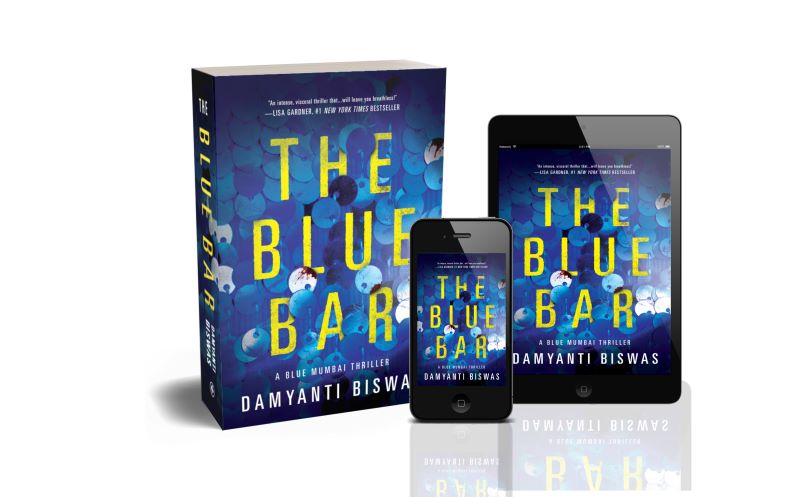BY SURABHI KAUSHIK*
Novelist Damyanti Biswas is the author of two novels, You Beneath Your Skin and The Blue Bar. She has always loved being immersed in the world of books and enjoyed expressing herself through writing. Intrigued by what makes people tick, she began writing short stories and novels revolving around crime. The Blue Bar, a fast-paced crime thriller transports you to the streets of Mumbai that bear witness to a tale of loyalty, love and revenge. She is currently working on the sequel to her second novel.
What inspires you to write crime fiction?
I’ve had a bone to pick against injustice since my childhood. As I grew older, this morphed into an interest in the issues of social justice. As a reader, I don’t enjoy pontifications, so to explore these issues, I took to crime fiction.
It helps that during a crime and its investigation, the perpetrator, the victim and the investigator all experience heightened emotions, which peels back their masks, revealing their true selves to the reader. This satisfies my interest in human nature: what makes people tick, and why they do the things they do. Most of my stories are whydunits instead of whodunits.

Was the writing process of your second novel any different from your first and how?
It was definitely shorter. My first novel, You Beneath Your Skin, was my way of learning how to write a novel. By the time I started writing my second, The Blue Bar, I’d refined my process from writing by the seat of my pants to having a sort of outline—an idea of the beats I wanted the story to hit.
I see that there has been a lot of in-depth research when you wrote The Blue Bar. What were the challenges you faced during your research?
I’ve spent long spells in Mumbai, but I haven’t lived in the city. To write the city not as a backdrop but as a character, I had to travel there and spend some time on its streets. Mumbai police is not easily accessible, nor is Bollywood, so a lot of the interviews came through the grace of friends, and friends of friends. That involved a fair bit of running around, but this proved worthwhile because I learned so much I didn’t know.
I love the way you develop your characters. Can you give us some important tips on character development?
One of the first things I learned about characterization is that a character needs to have an external goal, something they want. They also must have an internal need, often one they’re unaware of—a sort of ‘false belief’ that keeps them from achieving what they want. They need to fix that internal belief system before they can reach their external goal.
This leads to an interesting tension, and a cool way to create a character arc which traces the inner growth of a character from a state of a certain false belief (for instance, ‘I’m unworthy of love’) to a revelation of truth, “Everyone’s worthy of love.” This transformation removes the obstacles in the path of what the character wants, so they go on an external as well as an internal journey towards their outer goals and inner needs.
To do this, you must know the character’s history—the relevant parts that led to the creation of their ‘false belief’. Once you know this relevant backstory, you can use it to intuit the character’s actions and responses. The fact that you’re aware of it as an author will add depth to your character, and make them memorable.
Do you have a favorite crime fiction novel?
So many, but I can name one non-fiction book that led me into my journey of crime writing: In Cold Blood, by Truman Capote.
Do you have a writing ritual?
I often read a bit of poetry before starting a day of writing.
What advice would you give to someone who is new to writing?
Those who make a career of writing, don’t just talk about writing, or read about writing –they actually write, as often as possible. What you practice is who you become. While it is useful to talk or read or write about writing, putting the actual words on paper or the blank screen makes the biggest difference.
*Words have always been Surabhi Kaushik’s best friends, allowing her to find comfort and joy in playing the role of a copywriter, storyteller, poet, essayist, and a literary artist, not necessarily in that order.





